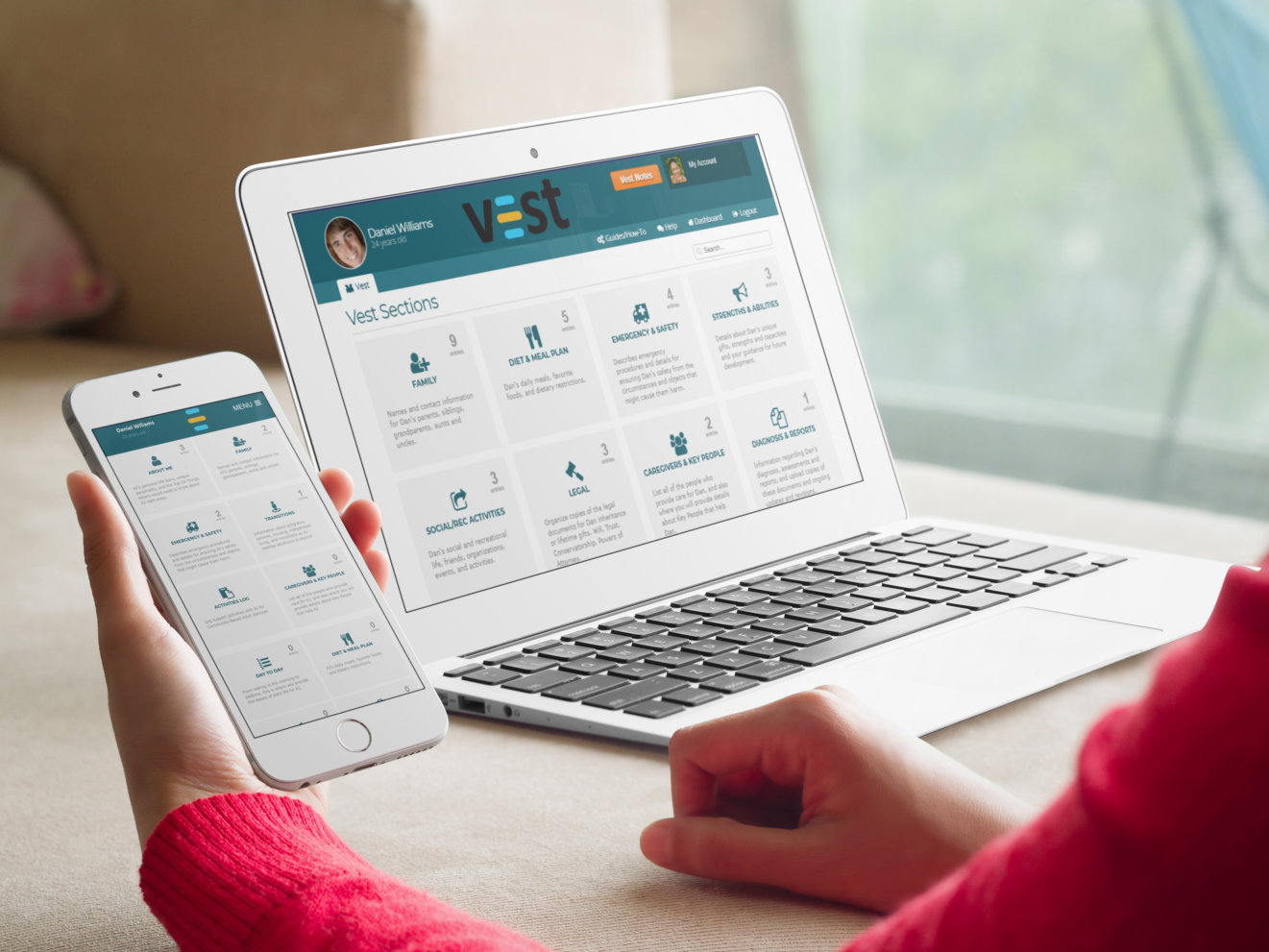Most people today have too much to keep track of. Work duties. Volunteer duties. Personal projects. Electric bills. Cable bills. Car-repair bills. School records. Medical records. Passwords to access all those bills and records.
It gets worse when someone in your family has a disability. More medical records. Needs for special accommodations. And hanging over it all, the specter of, “What if I lose or misplace something critical?”

In Search of the Ideal Solution
Where medical issues are involved, misplaced information is everyone’s worst nightmare—and planning to avoid it isn’t much fun, either.
Physical binders are complicated to organize, complicated to search, and complicated to rescue in case of natural disaster. Digital systems come with a learning curve, can be expensive, and involve extra security concerns. Many families have records scattered over a variety of tools—a physical binder here, a Dropbox folder there—which only makes it harder to locate the right item. And when you need to share the caregiving load, there’s the additional concern of whether you’ll have to share private health information as well.
One other, often-overlooked concern involving digital organizers: many prove transient. It hurts to find the perfect organizer app, only to be notified six months later that the developer is going out of business and you need to transfer your data somewhere, anywhere, you-don’t-know-where.
Advice from a Developer
Of course, you’ll keep backup records in secure, well-proven locations. But it also pays to stay updated on current organizer options. One newer organizer worth knowing about is VestLife, designed to provide secure, personalized solutions wherever there’s disability in the family. Their slogan sums it up: “Save Time, Reduce Stress, and Worry Less About Your Child’s Care.”
For the latest on VestLife—and general suggestions on family organizing—BridgingApps consulted Michael Pearce, VestLife co-founder and former special needs attorney.
Q: What features should families look for in a digital organizer?
Pearce: The top three needs are:
- Having everything in one place. Instead of your child’s information being spread across your desk and your brain—with all the stress and time of constantly seeking information—we believe in having one place to keep everything, neatly organized, always available, and never lost. That’s one thing the Vest system is about: having all of your child’s key information in one place.
- Instant Access in an Emergency. Mary (name changed), one of our “Vesties,” recently told me that when her family was visiting Arizona, her son Josef (name changed) had a seizure and was rushed to the ER. Josef is 22 and has non-verbal autism, which caused some difficulties dealing with medical staff: they questioned Mary’s authority to make medical decisions for Josef, and kept trying, without success, to talk to him directly. Mary solved that problem in less than a minute by logging into Josef’s Vest with her iPad, and pulling up her Letters of Conservatorship authorizing her to make decisions for him.
- Letting others know what to do. Your child’s life is complex, and the day will arrive when you can’t manage everything for them anymore. With the right organizer, you can rest easier knowing that all of your child’s key information will be stored and passed on so others will know what to do.
Q: What about organizer apps for helping other family members: neurotypical young children, aging parents, adults with traumatic brain injuries?
Pearce: In response to requests from our “Vesties,” we are currently building “MyFamilyVest,” which is scheduled for launch in late June. It will have the same capacities for file management, safe sharing, and easy organization—custom-designed for family members of all ages and descriptions. (Interested readers can sign up for updates on our Coming Soon page.)
Q: What innovation are you proudest of?
Pearce: Our dashboard is designed and built to reflect how life really works. When I hired my first Vest programmers, it took hours to explain we didn’t want to build just another list-making tool. Twenty years as a life transition attorney/planner taught me that life is not a list, and parents need an app that recognizes each child as a person, not just blanks to fill in on a checklist. That’s why we designed Vest to be person-centric: 20 major Sections of life, hundreds of customizable Pockets for parents to fill in as needed and as life unfolds—and not a single list tool. Plus, we’re focused on improving quality of life for the parents as well as the children.
Speaking personally, everything about working with parents of children with special needs is a plus. I feel we’re helping parents solve their greatest challenges, and giving them a path to peace of mind.

